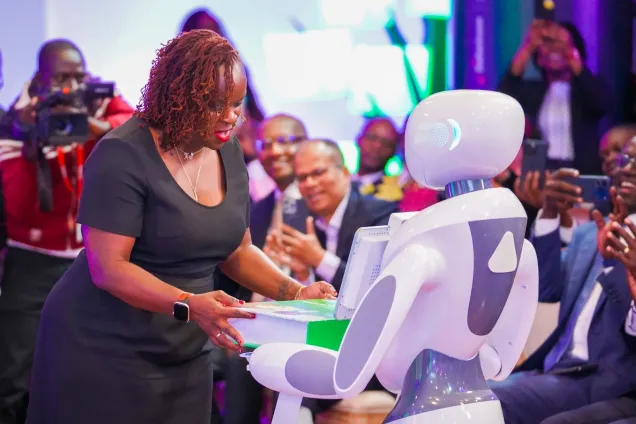The career of an IIIEE alumna: Johanna Lissinger
From climate negotiations at the COP to the UN Global Plastics Treaty, whether she was leading the Swedish delegation at the United Nations (UN) Climate Change Conference (COP), or driving work on the UN Global Plastics Treaty, she has always been motivated by making a daily difference: “Everything we do is in one way or other about changing the world for the better”. Since graduating in 2000, as part of batch 5, EMP alumna Johanna Lissinger Peitz, has primarily worked on climate and environment related issues for the Swedish government.
What are you currently working on?
I am leading the Swedish delegation that works on the UN Global Plastics Treaty, which aims to end plastic pollution by creating an international agreement that addresses the entire life cycle of plastic, from production to disposal. I also represent EU in these negotiations, as EU speaks with one voice on the UN level. Another responsibility includes a partnership with the government of India focusing on transition of the steel and cement sector. My role is Senior Advisor at the EU and International Unit at the Ministry of Climate and Enterprise). I’m also part of the bureau for the 7th United Nations Environment Assembly.
Can you highlight some other work experiences?
For many years, I led the Swedish delegation to the COP conferences. This work included representing Sweden in the EU, as EU negotiates with one voice at the COP too. I also represented EU in the multilateral negotiations as chief negotiator on issues relating to climate finance. From 20202-2022 I was appointed Ambassador for Stockholm +50, which was an UN meeting taking place in Stockholm in commemoration of the 50th anniversary of the 1972 UN Conference on the Human Environment in Stockholm. That meeting was the first major global event to address environmental issues and led to the creation of the UN Environment Programme (UNEP).
What motivates you in your daily work?
I am motivated by the knowledge that I am actually making a difference, from the very large important issues to the very small day-to-day things, for example supporting and guiding colleagues in their work. It has been an amazing journey, to have been able to represent, and continue to represent Sweden. Even though escalating climate change and environmental destruction can make the world seem bleak, many important break throughs are happening every day. For example, bringing countries closer together in how to address and mitigate climate change or problems with plastics. As a negotiator, you have to be humble and be able to accommodate and respect other approaches.
Overall, EMP gave me a good foundation to start my career, and many tools which I could use directly, for example the importance of an integrated approach to sustainability and not at least the importance of the economic perspective.
What do you bring with you from your studies at IIIEE?
First and foremost, I learnt invaluable lessons from being immersed in an international context. From the very start I had to collaborate with people from all over the world, learning to navigate cultural differences and world views. It gave me opportunity to hone my skills in interpersonal communication, and I also became aware of how I can be perceived by others. This experience shaped me and taught a me a lot. I also value the holistic approach in EMP, which gave broad insights on environmental issues from an economic, social science and cultural perspective. Overall, EMP gave me a good foundation to start my career, and many tools which I could use directly, for example the importance of an integrated approach to sustainability and not at least the importance of the economic perspective.
What advice would you give to students interested in pursuing an education in sustainability?
My advice would be to pursue as broad an education as possible; a bachelor or master programme which offers knowledge in not just in sustainability, but also, as for example EMP, in business, or AI for example. Sustainability should not be seen as something separate, therefore it is important to combine it with other disciplines too, in order to be able to integrate it a variety of sectors.

Alumni story: Karen Basiye
"Creating social impacts for millions of Kenyans through strategic partnerships"

Alumni story: Lisa Heldt
"Exploring circular business model innovation and its implementation in the Swedish manufacturing industry."

Alumni story: Tamsin Ekkel
"Passionate intern in the recycling team in the Sustainability department at TetraPak"

Alumni story: Ramya MA
"Enjoying the Master's program experience for the work consultant at the World Resources Institute in India"


